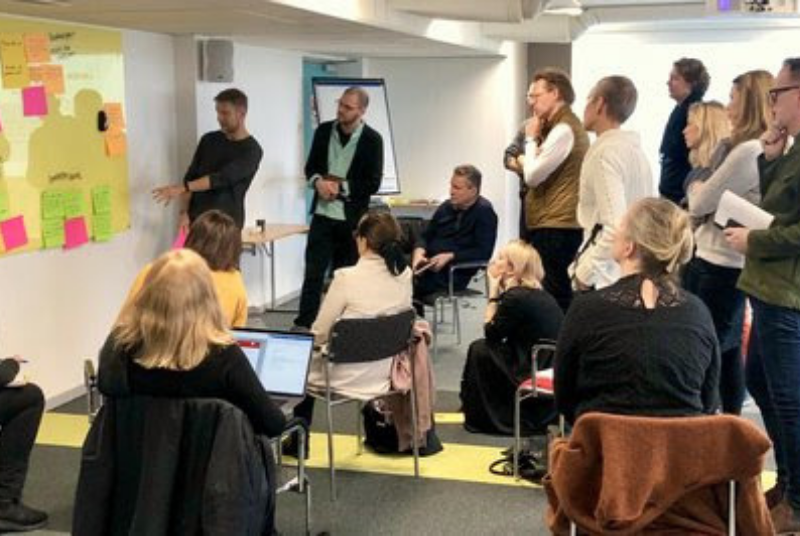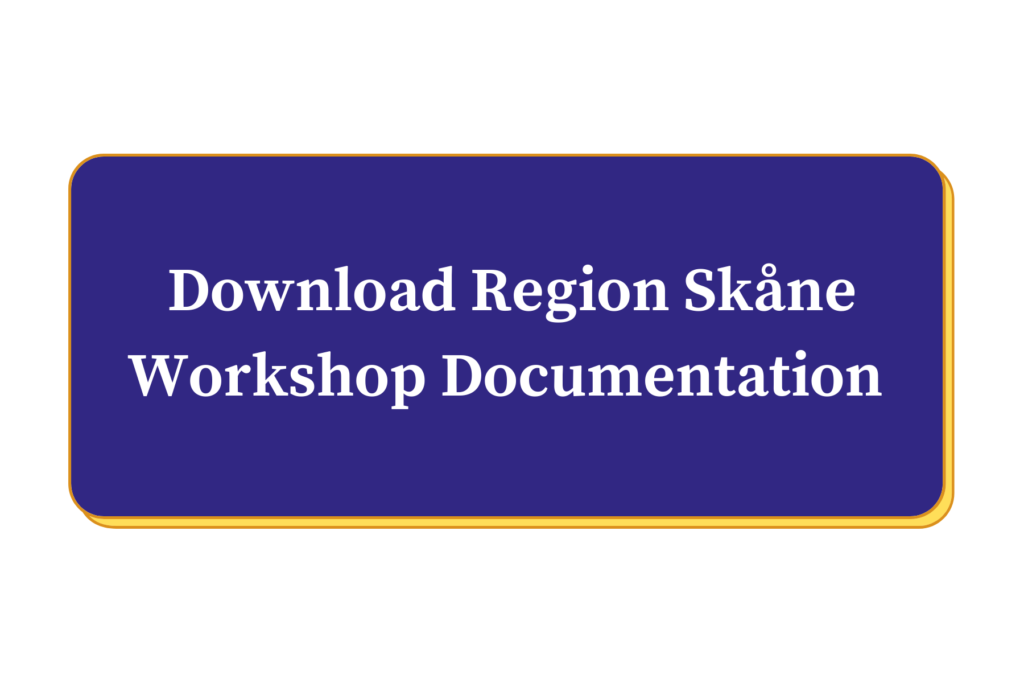Region Skane Urban Lab Traineeships – Learning Lab for Action and Policy Development

About the event
Urban Lab Region Skåne organised a series of three online traineeships taking place from September to November 2020. Using a range of digital collaboration tools, the participants of these three events explored ways to partner up over organisational borders to co-create futures for culture, arts, and city/regional development.
This learning process draws on experiences from Skåne, Sweden – specifically the Urban Lab that the public regional actor Region Skåne convened from September to November 2019. However, all participants were asked to bring their experiences and questions to co-create knowledge in a dynamic, highly participatory online learning process.
The traineeship offered valuable peer-to-peer learning that stimulated creativity and support participants to articulate new ways forward in their context. This presented an explorative process that also aimed to strengthen the capacity to host “Labs”. In these labs, actors co-create learning initiatives and policy briefs in arts, culture, and societal development. As a result of this process, Region Skane hopes to provide useful material for the continuous work of the CCSC project and all participants to use in the future.
The event brought together partners from CCSC network with their local/regional partners in governments, public agencies, and independent organisations. It also brought other interested participants who wished to develop their own partnerships and practices. We were delighted to collaborate with 25 registered participants on Zoom and a Miro board during the session.
Facilitators
David Ershammar, Omtänk utveckling / Malmöakademin
David Ershammar is a process designer and facilitator supporting public and non-governmental organizations to better co-create work in the areas of social change and sustainability. He was lead in the Skåne Urban Lab process.
Jesper Hök, Gro – Co-Creating Sustainability
Jesper Hök supports groups to co-create and learn around leadership and strategy and is currently involved in several initiatives to support actors in culture and arts to strengthen their role in society.
Ola Jacobson, Executive Officer of CCI & International Affairs, Region Skåne Cultural department.
Ola Jacobson coordinated the participation of Region Skåne in the Cultural and Creative Spaces and Cities project.
November workshops
Region Skåne organised two online workshops to engage multi-level actors working in the Cultural sector in the region. They shared experiences and learning with each other regarding the pandemic and the restrictions that have followed it.
The workshops gathered 120 artists, creators, developers, civil society representatives, and decision-makers to discuss the challenges and opportunities that have arisen from the conditions caused by the pandemic. The uncertainty that exists has made it more crucial than ever to learn from each other. The negative impact caused by the pandemic has been devastating for many people. But when the establishment gets disrupted, new opportunities also arise.
Examples of questions that Region Skåne interrogated included:
How have we been affected and, what have we learned that we want to continue with and develop further?
How can we together take advantage of people’s initiative and the resources that exist in Skåne?
What is going on? How can we work together to strengthen the development of society and the conditions for artistic creation?
The goals
Firstly, the overall goal is to become inspired and to learn from one another. The discussions aim to outline the needs of the local society and consider how to collectively contribute to and strengthen the continued development of cultural life in Skåne. Region Skåne hopes that these dialogue meetings have allowed bringing new ideas to many aspects of businesses. From business development to political priorities – new insights, new thoughts, and new knowledge.
Urban Lab Skåne Background
From October to November 2019, Region Skåne invited stakeholders across the region working at many different levels and sectors in society to three workshops. The purpose was to discuss how to develop new methods for co-creating policies and activities to strengthen the role of culture in social development. How can the supporting structures for culture, business, and other sectors harmonize their efforts? How can civil society interact with and influence the political strategies for sustainable local development? What is the best way for regional governments to support local municipalities in enhancing their co-creative capacities? The process and outcome of these workshops are the starting point of the Traineeship Event.

